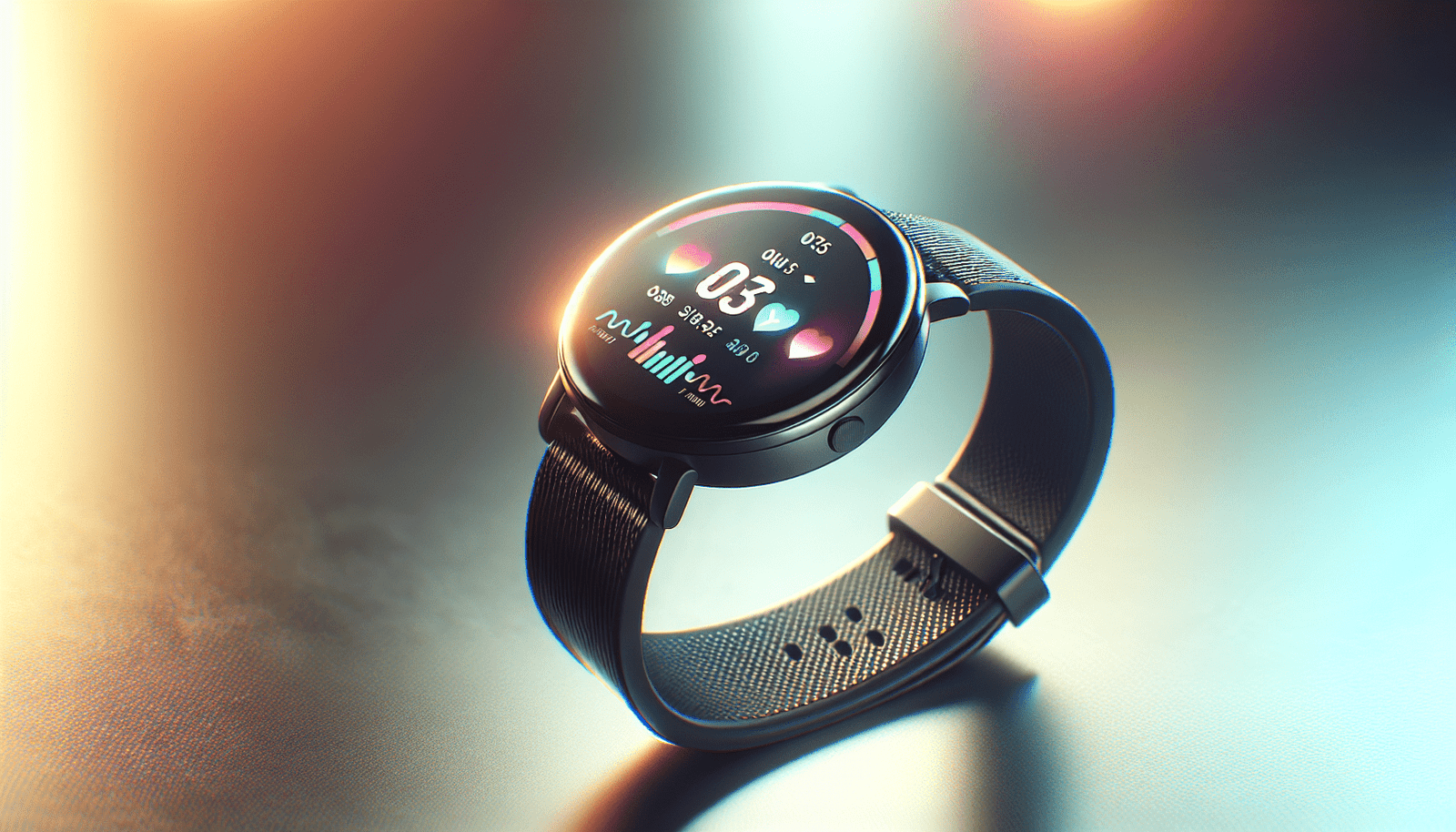Have you ever wondered how technology can improve your health and wellness? This question has become increasingly relevant with the rise of smart healthcare, a term that encompasses a variety of innovative technologies designed to enhance patient care. In this article, I’ll share my insights on the impact of smart healthcare on patient wellness, exploring its many dimensions and how it helps individuals like me lead healthier lives.
Understanding Smart Healthcare
Smart healthcare refers to the integration of advanced technologies in medical practices and patient care. This includes telemedicine, wearables, health apps, artificial intelligence, and big data analytics. I find it fascinating how these innovations come together to create a more efficient system that benefits both healthcare providers and patients.
The Evolution of Healthcare Technology
The transition from traditional healthcare to smart healthcare has been gradual but revolutionary. Initially, healthcare systems relied heavily on face-to-face interactions and paper records. With the advent of digital records and telehealth, everything began to change dramatically. I remember when telemedicine started gaining traction, allowing doctors to consult patients remotely, making it more convenient for everyone involved.
Key Components of Smart Healthcare
Smart healthcare is built on various components that work together to enhance care delivery. Here are some of the key elements:
| Component | Description |
|---|---|
| Telemedicine | Remote consultations between patients and healthcare providers. |
| Wearables | Devices such as fitness trackers that monitor health metrics. |
| Health Apps | Mobile applications designed to track and manage health. |
| AI and Machine Learning | Technologies analyzing health data to improve diagnoses and treatment options. |
| Big Data Analytics | The use of large data sets to identify trends and enhance patient care. |
Each of these components plays a pivotal role in ensuring that I have access to comprehensive and timely care.
The Role of Telemedicine in Patient Wellness
One of the standout features of smart healthcare is telemedicine. This technology has transformed the way I approach my health by allowing me to consult with healthcare professionals from the comfort of my own home.
Convenience and Accessibility
Telemedicine offers unparalleled convenience. If I have a minor health issue or need a follow-up consultation, I can simply schedule a virtual appointment. This eliminates long wait times in clinics and provides me with immediate access to my healthcare provider.
Increased Patient Engagement
Having the ability to communicate with my healthcare provider easily means I’m more engaged in my health management. I can ask questions, express concerns, and better understand my treatment options. This active participation is vital for my overall wellness.
Wearable Technology: Keeping Track of My Health
I can’t emphasize enough how wearables have changed the game for personal health monitoring. These devices, often fashionable and lightweight, empower me to keep track of my health metrics effortlessly.
Features of Wearable Devices
Wearables come equipped with an array of features. Some of the most common include:
- Heart Rate Monitoring: I can easily track my heart rate throughout the day, which can provide critical insights into my cardiovascular health.
- Activity Tracking: By monitoring my steps, distances, and active minutes, wearables motivate me to stay active.
- Sleep Tracking: Understanding my sleep patterns helps me identify areas for improvement in my rest and recovery.
- Nutrition Management: Some devices allow me to log my food intake, which aids in maintaining a balanced diet.
Benefits of Wearable Technology
Using wearables has several advantages, including:
- Real-Time Feedback: I get immediate feedback on my health metrics, which encourages me to stay on track with my fitness goals.
- Data Sharing: Many wearables allow me to share my data with healthcare professionals seamlessly, leading to more informed health decisions.
- Personal Accountability: The visibility of my health data holds me accountable for making healthier choices.
Health Apps: Taking Control of My Wellness
Health apps play a crucial role in the smart healthcare landscape. With a few taps on my smartphone, I can manage various aspects of my health, making it easier than ever to stay on top of my wellness journey.
Types of Health Apps
There is a plethora of health apps available, catering to different needs. Some popular categories include:
- Fitness Apps: These help me track workouts, set fitness goals, and monitor progress.
- Dietary Apps: I can log my meals, count calories, and learn about nutritional content.
- Mental Health Apps: Guided meditation and mood tracking apps support my mental wellness.
- Medication Management Apps: These remind me to take my medications and help me stay organized.
Advantages of Using Health Apps
By incorporating health apps into my daily routine, I’ve noticed several benefits, including:
- Personalized Goals: I can set specific goals tailored to my needs and preferences.
- Tracking Progress: Monitoring my progress encourages me to stay committed to my health objectives.
- Resource Accessibility: Health education materials and resources are easily accessible through apps, enhancing my knowledge.
Artificial Intelligence in Healthcare
Artificial intelligence (AI) is revolutionizing healthcare in ways that I never imagined possible. From diagnostics to personalized treatment plans, AI’s influence on patient wellness is profound.
Diagnostic Accuracy
One of the ways AI is making a difference is by improving diagnostic accuracy. This technology can analyze medical images, laboratory results, and patient data much faster than a human can. In my experience, more accurate diagnoses mean that I receive the right treatment earlier, ultimately improving my health outcomes.
Personalized Treatment Plans
AI can also generate personalized treatment plans based on my unique health data. By considering my medical history, genetics, and lifestyle choices, these systems can recommend tailored therapies that are more likely to work for me.
Continuous Monitoring through AI
Another exciting application of AI is its ability to facilitate continuous health monitoring. For example, AI-driven algorithms can analyze data from my wearables in real-time, alerting me and my healthcare provider of any concerning changes in my health metrics.
Big Data Analytics: Turning Information into Insights
Big data analytics is a powerful tool in the healthcare industry, allowing for the analysis of vast amounts of patient data to identify patterns and trends. This capability has a significant impact on improving patient wellness.
Predictive Analytics
Using predictive analytics, healthcare providers can forecast potential health issues before they become severe. For instance, by analyzing demographic data and lifestyle factors, my healthcare team might identify that I am at risk for certain conditions and take preventive measures early on.
Population Health Management
Big data helps in managing population health effectively. By aggregating data from various sources, healthcare providers can pinpoint health trends in specific demographics, tailoring their services to better serve the community. This proactive approach benefits everyone, including me.
Enhanced Clinical Decision-Making
Another advantage of big data analytics is its ability to enhance clinical decision-making. When my healthcare providers have access to comprehensive patient data, they can make better-informed decisions, ultimately leading to improved health outcomes.
Enhancing Patient Engagement through Smart Healthcare
An essential aspect of smart healthcare is its ability to foster patient engagement. Through various technological innovations, I find myself becoming more involved in my health management than ever.
Empowering Patients
Smart healthcare technologies empower me by providing access to my health records, medications, and treatment histories. Being able to review this information enables me to make informed decisions regarding my care.
Encouraging Proactive Health Management
With the vast resources available through smart healthcare, I am encouraged to take a proactive approach to my wellness. Whether it’s setting reminders for regular check-ups or tracking my health metrics, these tools encourage me to stay active in managing my health.
Telehealth and Mental Wellness
As mental health becomes an increasingly important topic, telehealth has emerged as a valuable resource for those seeking support. This technology has allowed me to maintain my mental wellness even during challenging times.
Accessibility to Mental Health Services
Through telehealth, I can access mental health services from anywhere, eliminating barriers such as transportation and scheduling. I appreciate having the flexibility to consult with a mental health professional at my convenience.
Anonymity and Comfort
For many people like me, discussing mental health issues can be daunting. Telehealth provides a level of anonymity and comfort that encourages open conversations about sensitive topics.
The Future of Smart Healthcare and Patient Wellness
As smart healthcare continues to evolve, I wonder what the future will bring. Innovations are emerging rapidly, and there is likely much more to come.
Advancements in Technology
The future may see further advancements in AI, machine learning, and wearable technology. These innovations will likely enhance patient care even more, providing me with tools to monitor and manage my health seamlessly.
Increased Collaboration
A trend toward increased collaboration between technology developers, healthcare providers, and patients is also emerging. As I become more involved in the conversation about my health, I believe my insights will help shape the direction of smart healthcare technologies.
Focus on Holistic Wellness
Lastly, an emphasis on holistic wellness is becoming apparent in smart healthcare. This means that as a patient, I will receive care that considers my physical, mental, and emotional well-being, leading to a more comprehensive approach to health.
Conclusion
Smart healthcare is significantly impacting patient wellness, providing me with tools and technologies that enhance my health management experience. From telemedicine to wearable devices, I have greater access, engagement, and personalization in my healthcare journey.
As I look to the future, I am excited about the possibilities ahead and how these innovations will continue to shape my health and wellness. With ongoing advancements in technology and a collaborative approach to care, I believe that my health outcomes will only improve over time. Embracing smart healthcare is not just about adopting new technologies; it’s about taking active participation in my journey towards better health.






